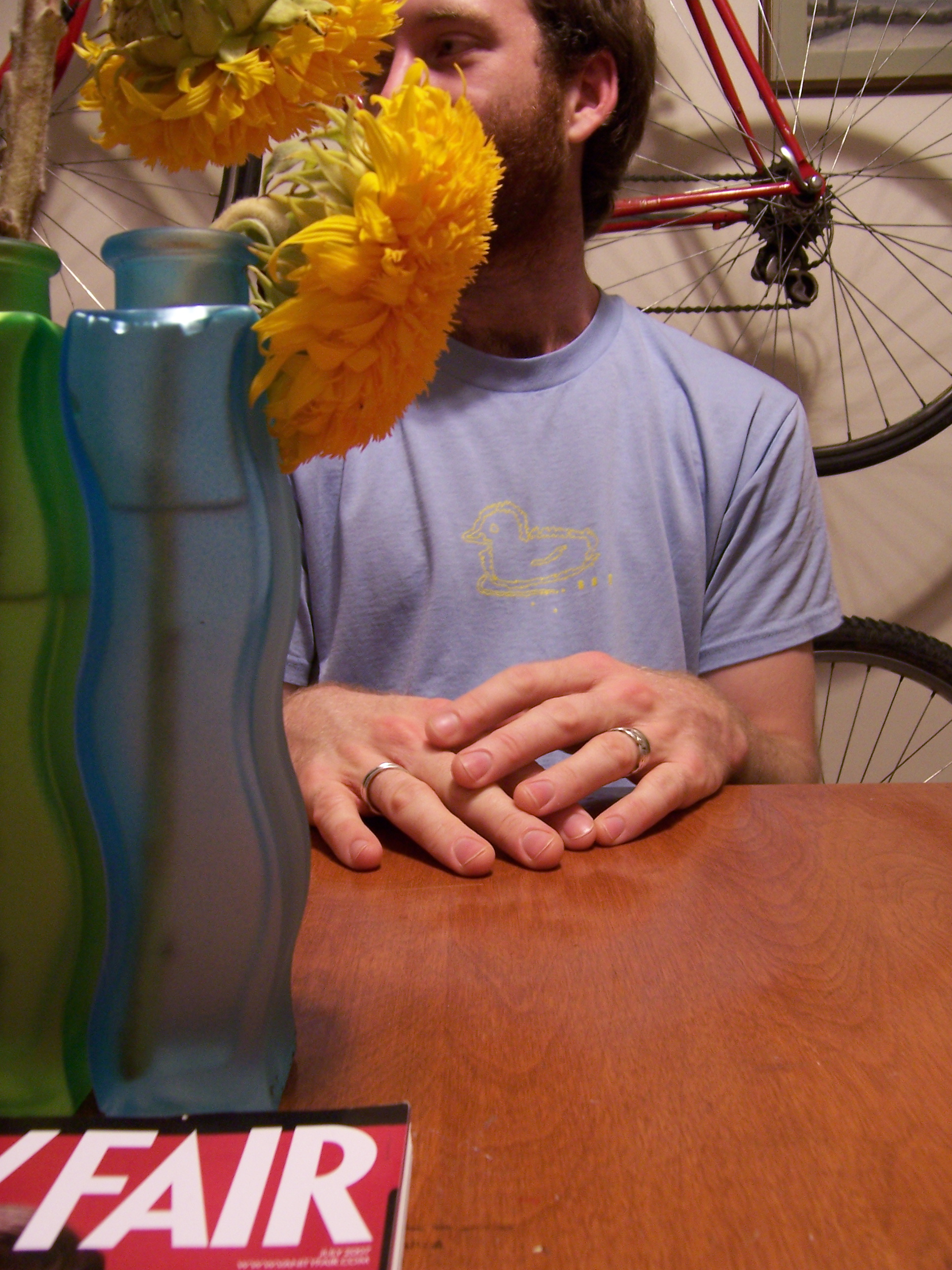Laughing in Class
Jill Reid
 It’s the first day of the poetry unit for my freshmen composition class. All morning, I rehearse my opening lines like a high school invitation to prom: Would you like to read poetry with me? I promise we’ll have a good time. After a few minutes, I advance to the break-up speech: No really, it’s not you. It’s me. I can’t help it. I just really love poetry. It’s ok. You can admit it—I know you hate it. Maybe we should just break up.
It’s the first day of the poetry unit for my freshmen composition class. All morning, I rehearse my opening lines like a high school invitation to prom: Would you like to read poetry with me? I promise we’ll have a good time. After a few minutes, I advance to the break-up speech: No really, it’s not you. It’s me. I can’t help it. I just really love poetry. It’s ok. You can admit it—I know you hate it. Maybe we should just break up.
Of course, I don’t say any of this. What I actually offer my class is a poem. I tell them that I’ve even chosen a funny poem. I tell them I’ve done this because poetry is often funny. And I avert my gaze in an attempt to ignore the dubious glances that follow.
At this point each year, I get worried. The problem is that in over ten years of teaching in both high school and college, I am not surprised when my students express their past experiences with poetry as sterile and cold, overly academic and irrelevant to their everyday lives.
Dana Gioia famously wrote in his highly lauded essay, “Can Poetry Matter?,” that poetry’s readership has been severely divided into classes of academic and common readers, noting that “outside the classroom—where society demands that the two groups interact—poets and the common reader are no longer on speaking terms.” I realize despite all their years of being tested on literature, many of my students have yet to engage with a poem in any sort of personally meaningful way. However, I know poetry is more than what they’ve experienced so far; good poetry establishes a meeting point between the poem and the reader that, at its best, is both warmly and meaningfully human. I want them to find even one poem they can hold against their humanity until it illuminates something about what it means to be human in a particular skin, in a particular moment, and in a particular place. I want that for them more than I want them to write a decent paragraph.
And I’m counting on a “funny” poem to wedge open the door between my passion and their doubt. So, anxiously, excitedly, I begin reading this poem.
Prof of Profs BY GEOFFREY BROCK For Allison Hogge, in memory of Brian Wilkie
I was a math major—fond of all things rational. It was the first day of my first poetry class. The prof, with the air of a priest at Latin mass, told us that we could “make great poetry personal,”
could own it, since poetry we memorize sings inside us always. By way of illustration he began reciting Shelley with real passion, but stopped at “Ozymandias, King of Kings;
Look on my Works, ye Mighty, and despair!”— because, with that last plosive, his top denture popped from his mouth and bounced off an empty chair.
He blinked, then offered, as postscript to his lecture, a promise so splendid it made me give up math: “More thingth like that will happen in thith clath.” Source: Poetry (July/August 2008).
When the first giggle emerges beneath the bill of a baseball cap in the corner of the classroom, I exhale and think that nothing really terrible can happen for the rest of the day because a student laughed at a poem in my 8:00 class. Apparently, I have nailed the lisp. Also, I discover that my students enjoy the poem. They tell me that they would love to read more poems like this. They ask me if any more exist. I am giddy. Yes. YES, I say, working hard to stifle the middle-schoolish glee I feel manifesting itself in a snort laugh.
Anne Sexton once wrote: “Watch out for intellect,/because it knows so much it knows nothing/and leaves you hanging upside down,/mouthing knowledge as your heart/falls out of your mouth.” Her poem indicates the danger in courting the intellect at the exclusion of the heart. Her words further illustrate what “Prof of Profs” so humorously acknowledges. Bock’s poem emphasizes the intersection between the academic and the “ordinary,” and the poem shines with the playful way the two worlds inform each other, contrasting their concerns and realities in a “plosive” and humorous tone. A studied engagement with art should not nullify our human-ness but rather increase our awareness of it. There is no checking humor at the classroom door because humor belongs to the experience of being human both inside and outside the world of the poem and classroom. Truly, art often makes space for such worlds to collide. And for a brief moment, in the grip of a good poem, my students and I bear witness to the glimmers and sparks that follow such collisions.
